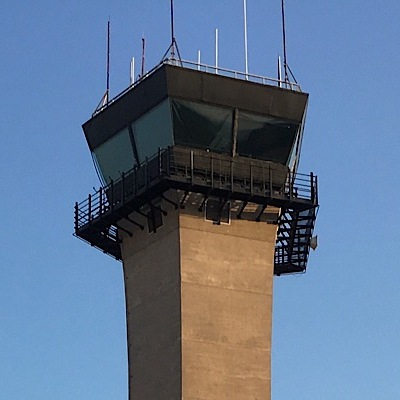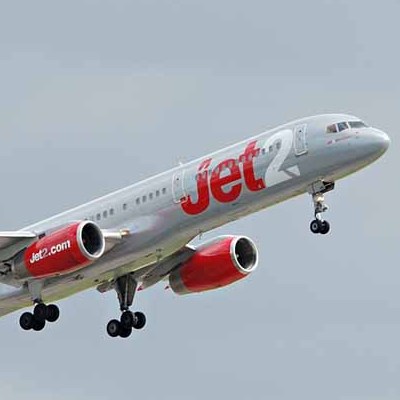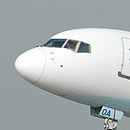NesNes wrote:Hello everyone,
I signed up here hoping someone can help me with my extreme fear of flying. I'm absolutely terrified. I dread it more than anything in life. Every single time I board a plane it feels likes it's the end of the world. I have backed out of trips and lost plane tickets before. I have to go on an 8hr (or so) flight and then a 2hr one in about 7 weeks. Then of course I have to travel back. So that's four flights. It's a trip I absolutely HAVE to take.
My problem is that I can think of a million things that can go wrong, such as:
1) terrorism (number one fear)
Check out this graph on the development of aircraft hijackings over time:
https://ourworldindata.org/grapher/numb ... de=grouped Notice how past 9/11 nearly no hijackings occured, with barely any fatalities. Check out
https://en.wikipedia.org/wiki/Timeline_ ... ng_attacks to see that, save for the recent Metrojet incident and two russian domestic flights, no airliner has been downed by a bomb in the past 20 years. Even many historical cases only involved damage to the airframe and the occupants closest to the IED.
Seriously, terrorism is too overhyped in the public opinion and media. 99% of terrorist attacks concern lokal politics and have no interest whatsoever to damage an aircraft. Check out
https://ourworldindata.org/wp-content/u ... nomist.png . Those dark red spots in chechnya, in south america, in northern spain and ireland? Merely local conflicts you likely have never took notice of.
What can you do? Behave normally and be aware of your surroundings. If you see something that bugs you, tell someone (but avoid making a scene). Maybe get an aisle seat to have a better view of the occupants. Or you might want a window seat to watch the wing flex and the flaps move and tell yourself "This is nothing out of the ordinary. I know what these parts and people do." There are smoke detectors in the lavatories if that comforts you. When you walk through the supermarket, does every person in a long coat, every man with a beard make you suspicious? Do you expect that teen hiding his hand in his pocket or that lady who may or may not be pregnant are terrorists? Does every bulging bag and every funnily driving car contain guns and explosives? People on an airplane are no different from people on the ground. You are safe in Canada, you are safe in Italy (or whereever you're headed), it will be no different in the air.
2) plane crashing during take-off (ex.stall,engine failure/fire,etc)
Most accidents happen during the landing phase, followed by the take-off. However, a take-off incident is more likely to deadly. (
http://www.1001crash.com/index-page-sta ... age-3.html)
A stall on take-off is very unlikely because you are accellerating, i. e. moving away from the stall speed, and the pilot is monitoring both speed and pitch very carefully. The critical speeds V1, Vr, and V2 are called out to ensure their observation by the pilot flying.
An engine failure is most likely to happen during the take-off roll because there are a lot of objects around it (e. g. birds) and the power settings and related mechanical loads are the highest of the entire flight. Be assured that ANY twin-engined aircraft can either safely take off on a single engine (beyond V1) or stop on the remaining runway (before V1). Now, you might ask: Couldn't both engines fail? The likelyhood of a single engine failing suddenly on your flight is about like winning the lottery. Both engines would be winning the lottery twice in a row. Even without engines, modern jets can glide a fair distance to reach a potential safe landing zone, like Cpt. Sullenberger did. If you have more questions regarding this event just ask. The more precise your question the more precise the answer.
An engine's exterior is equipped with extinguishers to prevent any fires there. Those fires you see after engine failures always develop AFTER the plane has come to a stop. They can only form when fuel from a penetrated fuel tank drips onto the hot engine exhaust or brakes. Therefore, you are perfectly safe inflight. The Concorde disaster was somewhat special in that regard since the concorde's engines are located directly underneath the fuel tanks and their afterburners could ignite the fuel behind them.
3) in flight hidden fire (ex lithium batteries in cargo)
4) poor inspection/maintenance (what if the mechanics who service the plane missed a potential problem? I can't remember the name of the episode on air crash investigation, but I remember a plane crashed because a wrong screw had been used).
You may want to watch this video (2 parts, in German,
https://www.youtube.com/watch?v=rIJ8g-7ZEf4 https://www.youtube.com/watch?v=doaMmCSfTV8) on how aircraft maintenance is performed. Even if you don't understand what they are saying, you can see how many people must confirm the proper execution.
I assume you are referring to
https://en.wikipedia.org/wiki/Alaska_Ai ... Flight_261 . Note how the crash only happened due to many mistakes. The mechanic had not properly lubricated the screw. Supervisors had, apparently, not performed as neccessary. The airline had aggressively increased the maintenance intervals. The overseeing FAA had lacked the oversight and had certified the design without noticing the possibility of a catastrophic failure. The manufacturer had created a single point of failure. Each of these is a non-event and only when combined a crash can happen.
5) major mechanical failure
6) major structural failure
7) major electrical failure
Not only is everything inspected by many people according to strict manuals but a single failure should never crash an aircraft. Everything that can fail is in some way fail-safe or redundand. Everything that is only available once (e. g. wings) is designed not to fail under any circumstances (-> point 10). Engine fails -> use second engine. Rudder actuator fails -> use second system. Hydraulic leak -> use second and third system. Complete generator failure -> deploy ram air turbine, rely on batteries in the meantime. Flaps dont extend -> land without flaps. Gear does not extend -> land without gear (both can be conducted safely).
Even an extraordinary situation does not equal an imminent crash and everyone's death. The two recent engine failures, the one at Qantas a while back, the one in London 20 years ago or US1549 all ended well. Visit
http://www.avherald.net to see how many incidents are handled every day without any report, often even without the passengers noticing.
8) deep stall
Save for specific T-tail aircraft a stall can always be recovered if identified correctly. Deep stall is something manufacturers consider and take precautions against. In any case, pilots are trained to react far before a stall can develop. There are warning systems in the cockpit (stick shaker, etc.)
9) severe CAT/severe wind shear/microbursts
Microbursts only happen near thunderstorms, which are avoided by any aircraft.
There are windshear warnings on most commercial aircraft that even predict upcoming windshear, giving the pilots ample time to react. The most dangerous thing about windshear (and microbursts) is the sudden change in airspeed due to the changing wind. If windshear is a possibility, the speed is slightly increased to prevent critical situations.
CAT does not harm the airframe. (oh, I suppose extreme cases could. You would not survive in that case anyway). The only danger is you getting thrown out of your seat. Therefore, keep your seatbelt buckled whenever possible. The seatbelt sign is for YOU, not the airframe. Weather charts include likely areas of CAT that are taken into account during flight planning.
10) total load outside of safe limits or load shift
All aircraft parts are designed to withstand the maximum expected loads safely. Examples would be really severe turbulence in thunderstorms, hail, significant overspeed or landings that will really hurt. "Safely" means that a margin of error is added: A safety factor of 1.5 (or greater) is added and tested for. Check out these vids on wing testing
https://www.youtube.com/watch?v=Ai2HmvAXcU0 https://www.youtube.com/watch?v=B74_w3Ar9nI . You may want to watch other flight testing videos to get an idea what punishment an airliner can withstand.
11) loss of cabin pressure (from say a cargo door not shut right)
Loss of cabin pressure is a non-event. Just pull down the mask and breathe normally until the crew gives other directions. Exploding cargo doors and the like were a specific trait of the DC-10. Since then, designs have changed to prevent this from happening again. Suddenly losing large fuselage parts as in the Aloha flight is prevented by a much better understanding of material fatigue and thorough checks.
12) major pilot and/or ATC error
There are always two pilots and two ATC controllers overseeing your flight. Procedures are designed in way to be easy to execute and tolerate some deviation. There are pre-written checklists for the pilots for nearly all imaginable circumstances to avoid errors. Additionally, modern aircraft crosscheck the pilot's actions and prevent dangerous situations themselves or give loud and visible warnings.
EGPWS to warn the pilots about an imminent collision with terrain.
TCAS to warn the pilots about an imminent plane collision. It works on both involved aircraft and gives all pilots clear commands to follow.
An Airbus will not exceed a certain pitch, angle of attack or roll. These are hard limits and cannot be overridden in normal situations. A Boeing will make it hard for and warn the pilot but allows him to exceed these limits if he deems it neccessary. (Not sure about the other manufacturers)
13) total loss of control
You don't just "lose control". A plane is an inherently stable system and does not suddenly flip or something, like a car could.
14) fuel exhaustion
Happens. Rarely. Aircraft have fuel measurements and pilots like to arrive safely too, so if the think more fuel than what the dispatcher expects is neccessary they may order a top off.
15) false instrument readings (confusing the pilots)
Like everything else, instruments are redundant. If a single instrument fails, the other two override it. Theoretically, pilots undergo training to identify and react to false intrument readings. Cases like AF447 happen but since then the faulty instruments have been replaced and procedures changed.
16) wake turbulence
Only a problem for very small aircraft directly behind and under a much larger one. Think business jet vs. A380 or tiny two-seater prop vs. any passenger aircraft. In any case, ATC knows about this and adds extra spacing where needed.
And the list goes on and on....

I understand no one here will go through the whole list and I don't expect that, but if someone could at least address the first four I'd really appreciate it. They are my biggest concerns.
I can NEVER relax on a plane. I am aware of every single smell, sound, etc. I watch all flight attendants carefully to make sure they don't appear nervous. I don't watch movies, listen to music or like to speak with anyone (aside from FAs) while I'm on a flight. I usually skip the meal. My stomach is usually in knots so the last thing I want to do is eat. I constantly look at the flight info screen and watch the speed, altitude and where the plane is. I freak out when the seatbelt light comes on because that usually means turbulence is coming up ahead. I freak out if someone happens to be taking too long in the lavatory. Meanwhile the poor passenger is probably not feeling well. During the whole flight I'm constantly looking at the time and calculating how much flight time is left. One time I even put the timer on my iPhone to do the countdown. I realize it's ridiculous, but I cannot explain the level of fear I have. It probably comes from the fact that if the plane crashes the chance of survival is pretty much zero. I feel sick just thinking about getting on a plane. I am absolutely DREADING it.
Please don't tell me "you're more likely to get in a car accident on the way to the airport" or "flying is the safest form of travel" or "there's risks with everything in life". While I know these things are true it doesn't help me one bit.
I also wanted to ask a few questions about engine failure/fire on take-off. Is an engine fire at this time a rare event? What usually causes this and what happens if pilots cannot abort take off? I have heard over and over that pilots can take off with just one engine, but planes have crashed from this, so...
I apologize for the extremely long post and I thank anyone who read all of it. If someone can give me some advice and answer some of my questions I would REALLY appreciate it.
Thanks so so much
Ps. Is Alitalia a safe airline (inspection/maintenance)?
I am sorry for the long post but you did have a lot of questions.







